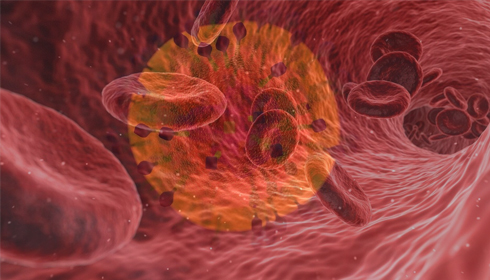
Monoclonal Antibodies Revolutionising revolutionising medicine with Precision Power, Finds Review
Researchers from the Sichuan International Medical Exchange and Promotion Association recently published a peer-reviewed study in Molecular Biomedicine, focusing on the evolving role of monoclonal antibodies (mAbs) and their growing significance in modern medicine. Dr. Hassan Aboul-Ella of Cairo University's Department of Microbiology leads the study, which investigates the creation, application, and future forecasts of mAbs in the treatment of a wide range of infectious and noncommunicable disorders.
Since the development of hybridoma technology in 1975, monoclonal antibodies have transformed medical therapies. Initially used in therapies, murine antibodies have now evolved into humanised and totally human antibodies. significantly reducing the risk of immunogenic reactions. According to the study, the global market for mAbs has grown significantly, with a compound annual growth rate (CAGR) of 11.07% projected from 2024 to 2033. The market, estimated to be worth $237.64 billion by the end of 2023, is expected to grow to a startling $679.03 billion by 2033.
Monoclonal antibodies provide numerous advantages over traditional medication therapy. These advantages include decreased side responses, fewer drug interactions, and highly selective protein targeting, making them an effective tool for treating complicated disorders. However, despite their effectiveness, Abs's high production costs have historically hampered their wider commercialization. The creation of biosimilar antibodies has emerged as a solution to this challenge, providing less expensive versions of these treatments without sacrificing effectiveness.
The paper also highlights current advances in antibody engineering, which have resulted in the development of bio-better antibodies. These upgraded versions are likely to outperform standard MAbs in terms of efficacy, extending their potential uses and contributing to the resolution of unmet medical needs across a variety of disease categories.
While the future of monoclonal antibody-based treatments appears promising, the study highlights significant obstacles in the industry. Despite advancements in biosimilars, high production costs continue to be a substantial hurdle. Furthermore, while mAbs are extremely focused and efficient, their usage in large populations still necessitates extensive clinical control to avoid any long-term dangers or unintended consequences.
As the demand for novel medicines grows, the study predicts that mAbs will play an increasingly vital role in world health. These innovative immunotherapeutic drugs have the potential to modify conventional medication treatments, providing new hope to patients suffering from diseases previously thought to be difficult or impossible to cure.
This comprehensive analysis offers light on monoclonal antibodies' current landscape as well as their prospective future in precision medicine, laying the groundwork for the next wave of immunotherapy innovation.